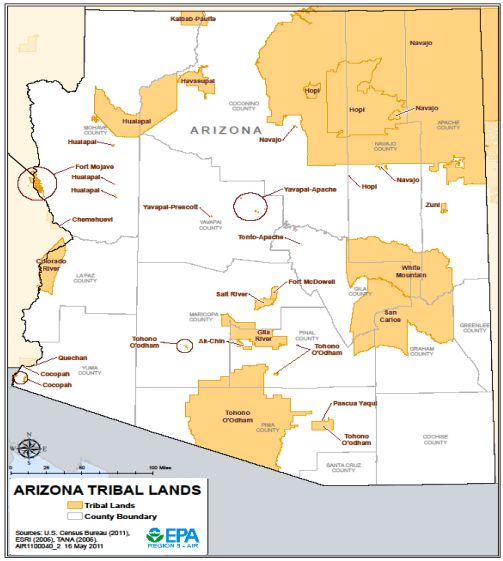Introduction
- With the commencement of Indian gaming in 1979 and its continued expansion, Indian tribes have had a substantial source of new capital available to Tribal governments.
- In 2020, Indian Tribes brought in $27.8 billion in gaming revenue, an unprecedented drop of 19.5% from the $34.5 billion in gaming revenue in 2019. The decline was due to the COVID-19 pandemic. See IndianAZ.com (August 17, 2021). As normalcy returns, revenues are anticipated to rebound.
- Tribes have used these revenues to expand business activity throughout their reservations and outside their In expanding their activities, Tribes are increasingly partnering with non-Indian businesses that bring expertise and new capital to their lands.
- This presentation introduces the key issues involved in doing business with Indian Tribes on Indian lands.
- There are legal complexities unique to dealing with an Indian Tribe that must be addressed when structuring a successful transaction.
Basic Facts of Indian Tribes
- The Federal Register lists all Federally Recognized Indian Tribes. There are 574 Tribes listed. See Notice by the Bureau of Indian Affairs, 86 FR 7554 (1/29/21).
- Arizona has 22 Federally Recognized Indian Tribes.
- Arizona's Tribes occupy over 19,000,000 acres of land, roughly 26.99% of land in the State, a greater percentage of land than any other State in the continental United States.
- Indian Tribes control 56 million acres of land in the continental United States and substantial natural resources.

The Legal Status of an Indian Tribe
- A Federally Recognized Tribe is a legal designation that establishes certain relationships between the United States and the Tribe.
- Recognition is "a formal political act, it permanently establishes a government-to-government relationship between the United States and the recognized tribe as a 'domestic dependent nation,' and imposes on the [federal] government a fiduciary trust relationship to the tribe and its members." H.R. Rep. No. 103-781, 103rd Cong., 2d Sess., 2 (1994).
- Recognition "imposes upon the Secretary of the Interior specific obligations to provide a panoply of benefits and services to the tribe and its members. In other words, unequivocal federal recognition of tribal status is a prerequisite to receiving the services provided by the Department of the Interior's Bureau of Indian Affairs (BIA), and establishes tribal status for all federal purposes." H.R. Rep. No. 103- 781, 103rd Cong., 2d Sess., at 3 (1994).
- Besides Federally Recognized Tribes, there are also State-Recognized Tribes and unrecognized tribal This presentation focuses only on Federally Recognized Tribes.
Structure of Tribal Governments
- Indian Tribes "are distinct, independent political communities, retaining their original natural rights in matters of local self-government." Santa Clara Pueblo v. Martinez, 436 S. 49, 55 (1978).
- An Indian Tribe is free to maintain or establish its own form of government. See 1-4 Cohen's Handbook of Federal Indian Law § 4.01 (2017).
- Each Tribe may determine its membership, enact criminal and civil laws, levy taxes, control tribal property, exercise powers delegated by Congress, and adjudicate tribal disputes.
- The forms of government that Tribes use to govern themselves vary widely. Some have very familiar structures like a three-branch form of government, that is legislative, executive, and judiciary, while others have only a Tribal Council which has the sole authority.
Download : PowerPoint Presentation (sackstierney.com)
The content of this article is intended to provide a general guide to the subject matter. Specialist advice should be sought about your specific circumstances.



